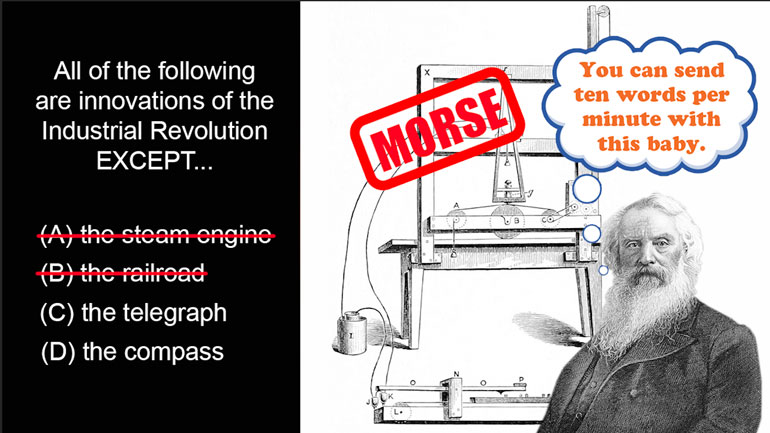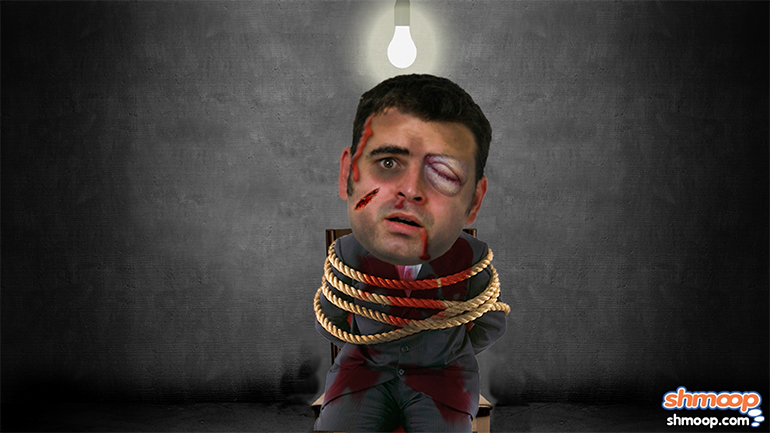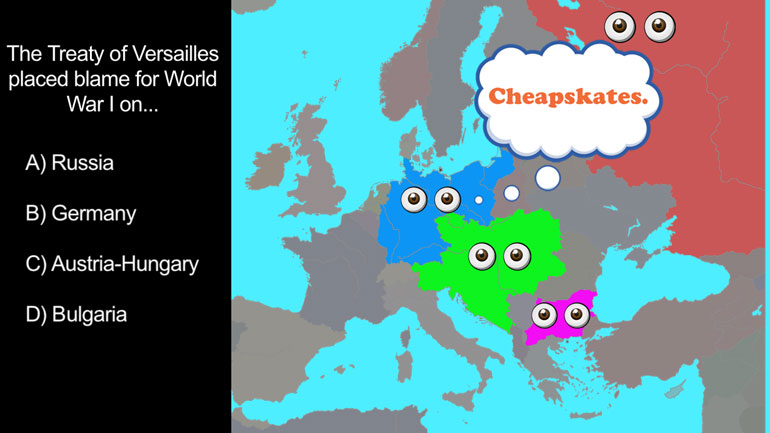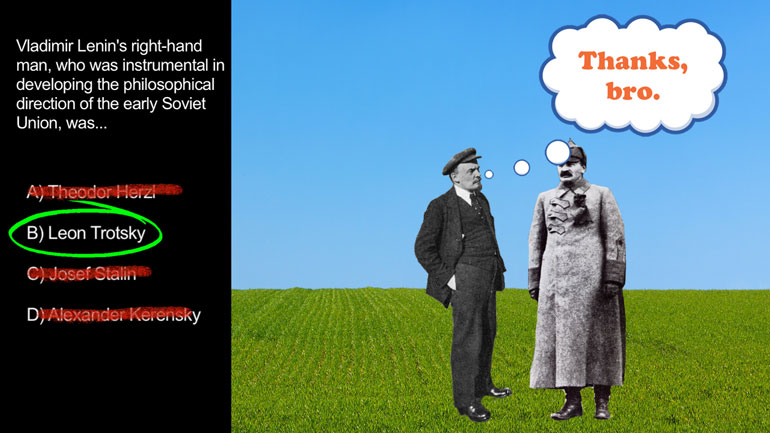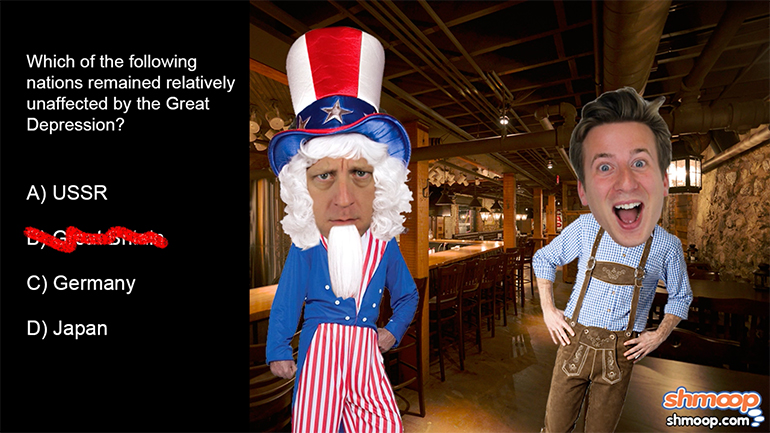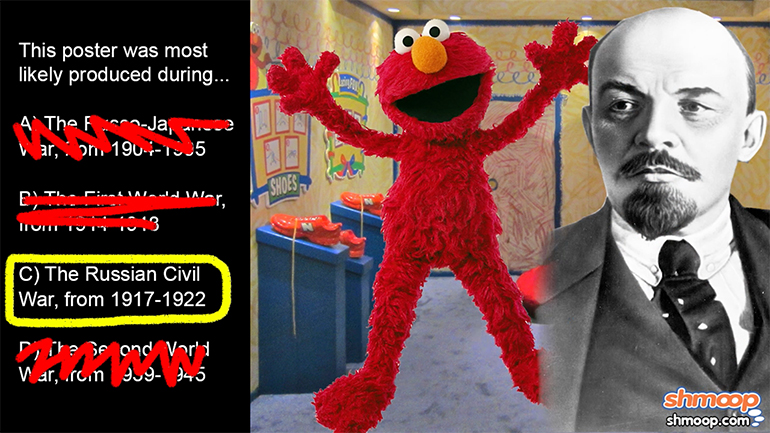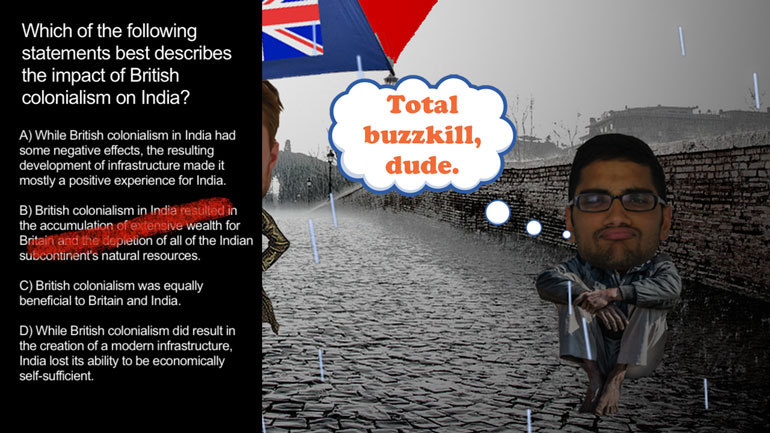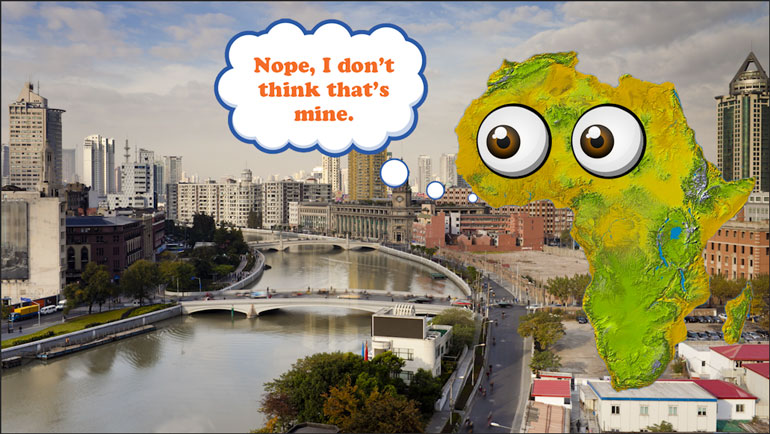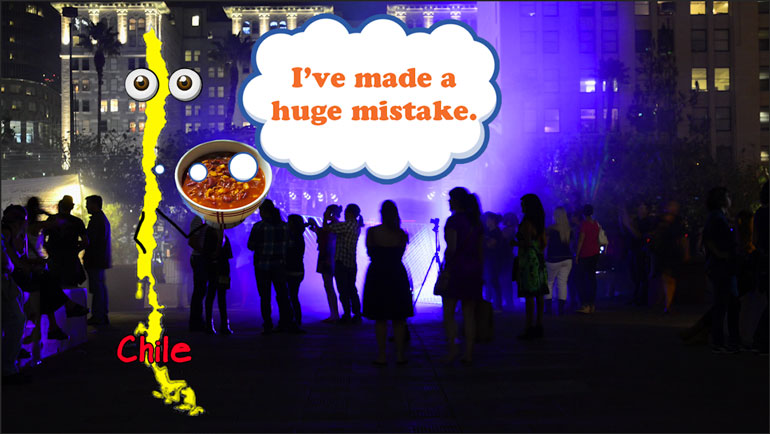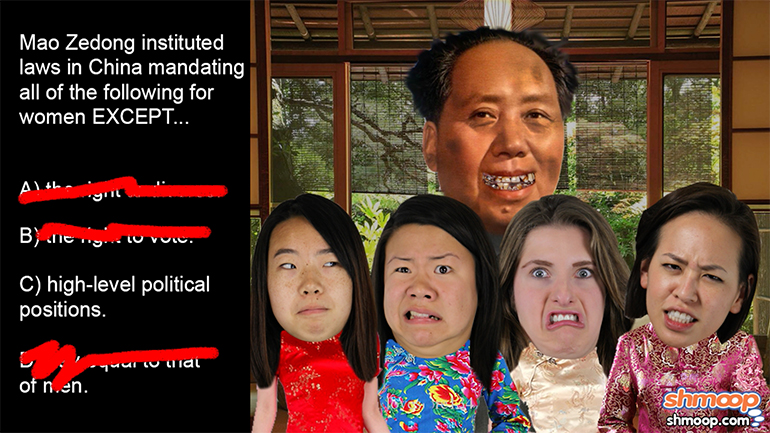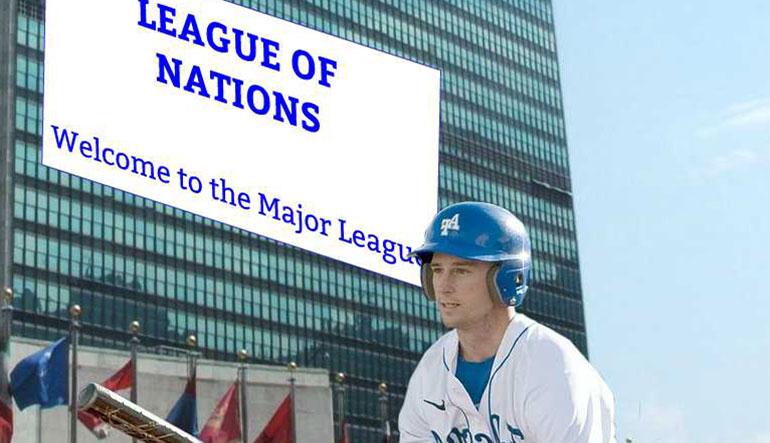ShmoopTube
Where Monty Python meets your 10th grade teacher.
Search Thousands of Shmoop Videos
Playlist World History 18 videos
AP World History 1.2 Industrialization and Global Integration, c. 1750 to c. 1900. All of the following are innovations of the Industrial Revolutio...
AP World History 1.5 Industrialization and Global Integration, c. 1750 to c. 1900. Which of the following statements best describes the compensatio...
AP World History 2.4 Industrialization and Global Integration, c. 1750 to c. 1900. Which of these nations was the most enthusiastic advocate for th...
AP World History 4.1 Industrialization and Global Integration, c. 1750 to c. 1900 229 Views
Share It!
Description:
AP World History 4.1 Industrialization and Global Integration, c. 1750 to c. 1900. During the Tokugawa reign in Japan, political power lay with...what?
Transcript
- 00:00
Sorry and here's your shmoop too sure brought to you
- 00:04
by a military dictator We're going to spill some secrets
- 00:08
So what Listen closely we mean way love our military
- 00:13
dictator nothing else to see here and here's your question
- 00:16
During the tokugawa reign in japan political power lay with
Full Transcript
- 00:21
what and hear potential and all right is easy to
- 00:26
eliminate because japan doesn't have presidents They have prime minister's
- 00:29
Apparently not everyone copies everything american except for mcdonald's Those
- 00:33
things are everywhere In order to narrow down the rest
- 00:36
why don't we recall exactly where we've heard tokugawa before
- 00:40
those tokugawa shogunate ring any bells nata Well let's get
- 00:43
that mental handlebar choir peeling The tokugawa shogunate was the
- 00:47
last feudal japanese military government and this government show guns
- 00:51
were both heads of government and military governor who pledged
- 00:55
to support the samurai or military nobility in exchange for
- 00:59
their protection All right now that the bells are ringing
- 01:01
let's look adoption day prior to the onset of the
- 01:04
tokugawa shogunate period the government was effectively an aristocratic one
- 01:08
in that people held their positions by being born into
- 01:12
that But what exactly can a wealthy socially elitist official
- 01:16
do when a bunch of samurais show up on his
- 01:19
land Cry Maybe but not a whole lot else A
- 01:22
new show gannett warlords had samarai muscle on their side
- 01:25
which ultimately proved to be more useful than a fancy
- 01:28
family name Kabaddi japan wass feudal and throughout the edo
- 01:33
or tokugawa period in japan From sixteen Oh three eighteen
- 01:37
sixty eight There were in fact emperors not the penguins
- 01:41
and when you think of political power you tend to
- 01:43
think of an absolute emperor But that absolutely was not
- 01:46
the case for basically the exact same reasons as before
- 01:50
and where can we find a samurai when we need
- 01:52
one anyway that leaves us with c show guns Authority
- 01:55
was ultimately both bureaucratic and militaristic meaning more than the
- 02:00
emperor They really ran the show even if the emperor
- 02:03
didn't want to admit it because political powers about the
- 02:05
ability to control and lead and these military dictators were
- 02:09
the ones doing both We know that sea is the
- 02:11
right answer Seriously where can we find the samurai We've
- 02:14
got this jar of pickles I can't seem to get 00:02:16.413 --> [endTime] over Well i got
Related Videos
AP World History 1.2 Industrialization and Global Integration, c. 1750 to c. 1900. All of the following are innovations of the Industrial Revolutio...
AP World History 1.1 Accelerating Global Change and Realignments, c. 1900 to Present. The Treaty of Versailles placed blame for World War I on...wh...
AP World History 2.5 Industrialization and Global Integration, c. 1750 to c.1900. What was the relationship between abolitionist movements and wome...
AP World History 4.3 Industrialization and Global Integration, c. 1750 to c. 1900. What was the immediate cause of the First Sino-Japanese War?
AP World History 3.2 Industrialization and Global Integration, c. 1750 to c. 1900. The Sepoy Mutiny resulted in...what?
